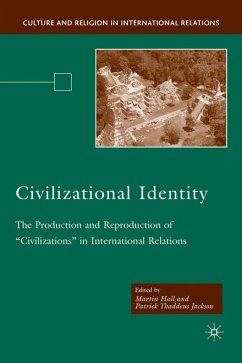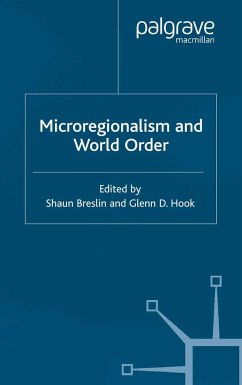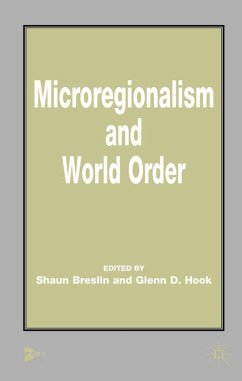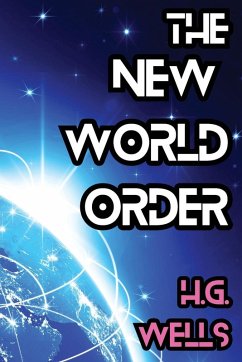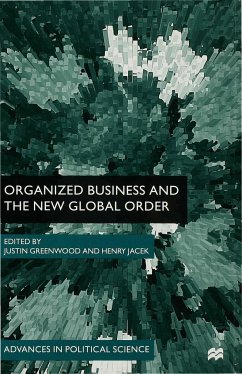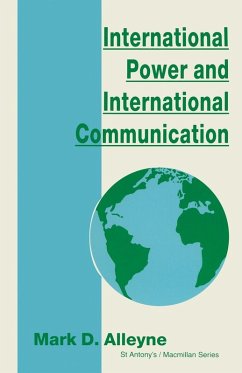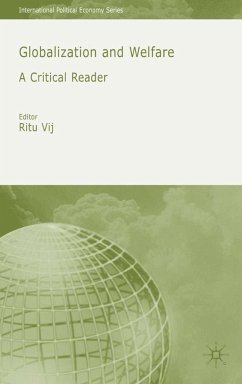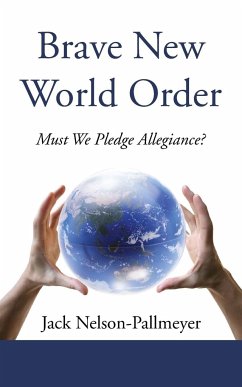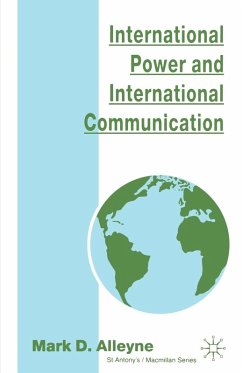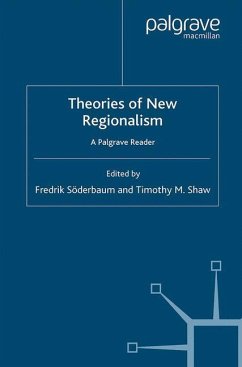
Broschiertes Buch
Civilizational Dialogue and World Order
The Other Politics of Cultures, Religions, and Civilizations in International Relations
Herausgegeben: Michael, M.
Versandkostenfrei!
Versandfertig in 6-10 Tagen
Weitere Ausgaben:

PAYBACK Punkte
19 °P sammeln!





The book comes at a very critical moment in the debate on civilization and responds to the lack of scholarly attention by international relations and political theorists as to how the discourse of dialogue of cultures, religions, and civilizations can contribute to the future of world order.
MICHÁLIS S. MICHAEL is a Research Fellow at La Trobe University's Centre for Dialogue, an Honorary Research Fellow at its School of Social Sciences, and a Fellow at the Contemporary European Research Centre, University of Melbourne, Australia. FABIO PETITO is Lecturer in International Relations at the University of Sussex, UK. He also teaches at the University 'L'Orientale' in Naples, Italy.
Produktdetails
- Culture and Religion in International Relations
- Verlag: Palgrave Macmillan / Palgrave Macmillan US / Springer Palgrave Macmillan
- Artikelnr. des Verlages: 978-1-349-37494-6
- 1st ed. 2009
- Seitenzahl: 308
- Erscheinungstermin: 16. Juni 2009
- Englisch
- Abmessung: 216mm x 140mm x 17mm
- Gewicht: 389g
- ISBN-13: 9781349374946
- ISBN-10: 1349374946
- Artikelnr.: 45585739
Herstellerkennzeichnung
Palgrave Macmillan
Tiergartenstr. 17
69121 Heidelberg
ProductSafety@springernature.com
"What makes this volume of essays so important is its coherent dedication to the timely theme of dialogue among civilizations - not as a generic humanitarian and pacifist aspiration, but as a central preoccupation for international relations . . .Only a dialogue between the West - particularly the European West - and the other great civilizations, especially the Islamic and the Chinese-Confucian ones, will save humanity from a second September 11th and the outbreak of a third world war." - Danilo Zolo, Director of Jura Gentium: Journal of Philosophy of International Law and Global Politics
"Civilizational Dialogue and World Order is an important and thought provoking read.Its editors, Michális S. Michael and Fabio Petito, have
"Civilizational Dialogue and World Order is an important and thought provoking read.Its editors, Michális S. Michael and Fabio Petito, have
Mehr anzeigen
broughttogether an impressive group of experts in a first class analysis of dialogue in an age of globalism and its challenge to international theory and politics." - John L. Esposito, University Professor and Professor of Religion & International Affairs, Georgetown University and co-author of Who Speaks for Islam? What a Billion Muslims Really Think
"We are all different and difficult to bring together. However, we are also all united by numerous - positive and negative - cultural, political, economic and geographical interconnections. Empires and ideologies have disappeared; distances have been curtailed. In coming to know each other, by recognizing Otherness, connections, distances, proximities and hybridities, we arepracticing that art of living together (con-vivere), which is the outgrowth of political realism as well as human and religious hope . . .This is the realization of a global civilization comprised of many civilizations - if one may use this expression - or of many cultural, religious and political worlds. The awareness for the need of such a civilization of living together may be the beginning of a new common culture shared by different people of diverse cultures." - Andrea Riccardi, founder of the Community of Sant Egidio
"A brilliantly edited volume that brings together a series of significant contributions to a fundamental rethinking of the nature of world order, conceived as the relations among civilizations rather than among sovereign states. This is an exciting new frontier for all forms of global studies, and is a challenging, timely, and stimulating volume for both classroom use and for the general reader." - Richard Falk, Albert G. Milbank Professor Emeritus of International Law, Princeton University
"We are all different and difficult to bring together. However, we are also all united by numerous - positive and negative - cultural, political, economic and geographical interconnections. Empires and ideologies have disappeared; distances have been curtailed. In coming to know each other, by recognizing Otherness, connections, distances, proximities and hybridities, we arepracticing that art of living together (con-vivere), which is the outgrowth of political realism as well as human and religious hope . . .This is the realization of a global civilization comprised of many civilizations - if one may use this expression - or of many cultural, religious and political worlds. The awareness for the need of such a civilization of living together may be the beginning of a new common culture shared by different people of diverse cultures." - Andrea Riccardi, founder of the Community of Sant Egidio
"A brilliantly edited volume that brings together a series of significant contributions to a fundamental rethinking of the nature of world order, conceived as the relations among civilizations rather than among sovereign states. This is an exciting new frontier for all forms of global studies, and is a challenging, timely, and stimulating volume for both classroom use and for the general reader." - Richard Falk, Albert G. Milbank Professor Emeritus of International Law, Princeton University
Schließen
Für dieses Produkt wurde noch keine Bewertung abgegeben. Wir würden uns sehr freuen, wenn du die erste Bewertung schreibst!
Eine Bewertung schreiben
Eine Bewertung schreiben
Andere Kunden interessierten sich für


